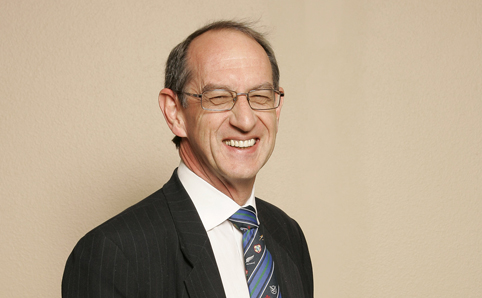 |
|
Dr Derek Swemmer
8 March 2012
|
The world’s premier academic honour society, the Golden Key International Honour Society, has recognised academic excellence at our university by appointing Dr Derek Swemmer, Registrar of the UFS, as chairperson of its international board of directors.
Dr Swemmer is the first South African to serve as Chairperson of the governing body of the society. He will take up office in July 2012. Dr Swemmer, who has served as a board member for two terms, was appointed at a recent board meeting of the society in Georgia, Atlanta in the United States.
Dr Swemmer's role as Chairperson of the board is to ensure that the society’s values of academic excellence, leadership and service are followed in the more than 375 chapters worldwide. He will serve a three-year term on the board, which oversees the awarding of scholarships worth $1 million to its members annually.
Dr Swemmer says he is honoured to serve the UFS and South Africa in this capacity. “The appointment is humbling when you know you have hundreds of volunteers that could have been asked to serve.”
Dr Swemmer, who is co-advisor of the UFS Golden Key chapter, says he hopes to help the society to expand its service activities in order to provide an excellent example to the world of how highly skilled academic students render meaningful service to their communities, both at university and to the broader community.
He says the Golden Key International Honour Society is a very important part of the UFS’s Academic and Human project.